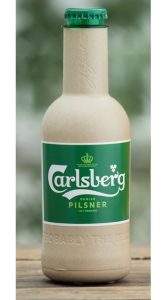Addressing Environmental Concerns
 Several environmental initiatives, designed to address climate change, have been launched recently:
Several environmental initiatives, designed to address climate change, have been launched recently:
1. In Cognac, the BNIC has introduced a ban on the chemical weeding of vineyard plots stating that winegrowers must control vegetation ‘by mechanical means’ in order to ‘preserve the terroir’s environment and resources.’ In addition, chemical weeding of field boundaries has been banned. The new ruling must be implemented by August 2020.
2. Closure maker, Diam Bouchage, has announced that using cork “is a long-term contribution to climate change mitigation”. The company claims that its cork production now absorbs more carbon dioxide than it creates. Cork forests help to absorb CO2 in the earth’s atmosphere and the trees are only harvested every 10 years for their bark. Demand for more corks will therefore lead to the planting of more trees. Cork trees live for over 120 years so their effect on the atmosphere is long lived.
3. In an attempt to address the perennial problem of drink packaging, Carlsberg have produced a ‘paper bottle’. Made from sustainably sourced wood fibres, it has a bio-based “inner barrier” which enables the bottle to hold beer and be fully recyclable. Still under development it is hoped that controlled testing will begin in 2020.

 The strength of carbon emissions created during the wine fermentation process is “five times more concentrated than planes and cars” according to UC Davis professor, Roger Boulton. “We should be capturing carbon in wineries, so they become carbon neutral. A litre of juice produces 60 litres of carbon dioxide. As a winemaker, if you want to be a serious leader in sustainability then you have to do this – a good way is to turn it into chalk,” he said. Consumer pressure to protect our environmental future by manufacturing in a more environmentally friendly way is becoming widespread. Also speaking in New Zealand, Villa Maria Estate’s viticulturist, Jonathan Hamlet, derided the use of chemicals in the grape growing process. “The way we grow grapes today will not be acceptable in the future. We need to respect the land, learn to adapt, and stop using pesticides and herbicides. We live in a world of conscious, value driven consumers who want products that reflect their values.” It will be interesting to see how long it takes for these views to be echoed in the Northern Hemisphere.
The strength of carbon emissions created during the wine fermentation process is “five times more concentrated than planes and cars” according to UC Davis professor, Roger Boulton. “We should be capturing carbon in wineries, so they become carbon neutral. A litre of juice produces 60 litres of carbon dioxide. As a winemaker, if you want to be a serious leader in sustainability then you have to do this – a good way is to turn it into chalk,” he said. Consumer pressure to protect our environmental future by manufacturing in a more environmentally friendly way is becoming widespread. Also speaking in New Zealand, Villa Maria Estate’s viticulturist, Jonathan Hamlet, derided the use of chemicals in the grape growing process. “The way we grow grapes today will not be acceptable in the future. We need to respect the land, learn to adapt, and stop using pesticides and herbicides. We live in a world of conscious, value driven consumers who want products that reflect their values.” It will be interesting to see how long it takes for these views to be echoed in the Northern Hemisphere.